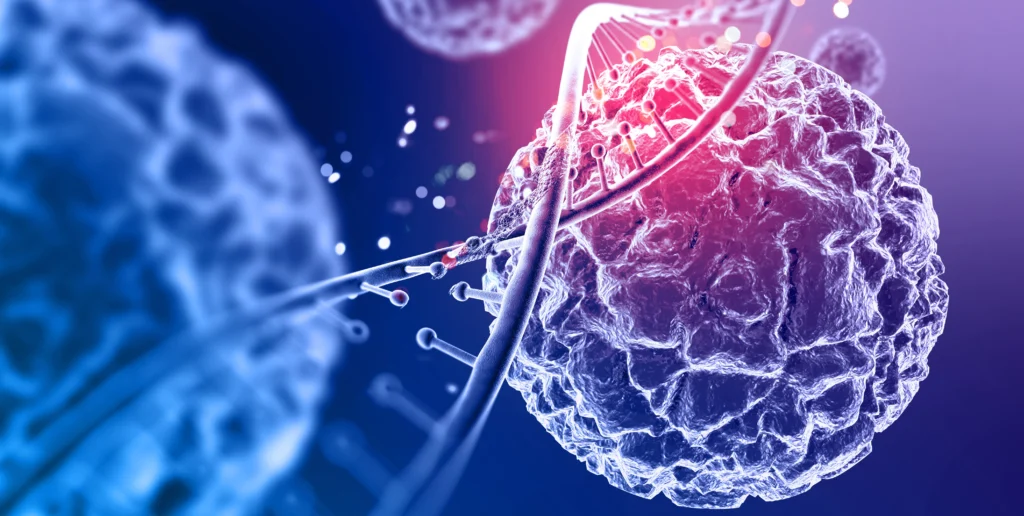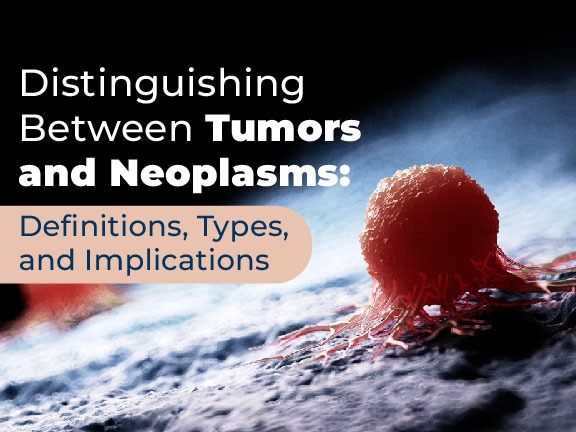Neoplasm, or a new and abnormal growth of tissue, can be benign, premalignant, or malignant. Benign neoplasms are non-cancerous and usually do not pose a significant health risk, although they can grow large and cause problems depending on their location. Malignant neoplasms, commonly known as cancer, have the potential to invade nearby tissues and spread to other parts of the body. Premalignant neoplasms have the potential to become malignant over time. Diagnosis of a neoplasm often involves imaging studies such as X-rays or MRIs, followed by a biopsy to determine the nature of the growth.
Neoplasm research is vital in understanding the various pathways through which tumors develop and progress. Scientists study the genetic, molecular, and cellular mechanisms that underlie tumor formation and growth. This research is crucial for developing targeted therapies that can effectively treat different types of neoplasms. For example, hormonal therapies might be used for certain neoplasms that are sensitive to hormonal changes, while immunotherapy may be more effective for others that are influenced by the body’s immune response. The goal of such research is not only to treat neoplasms more effectively but also to potentially prevent them from occurring in the first place.
Malignant lymph node neoplasm refers to cancerous growths within the lymph nodes, which are crucial components of the body’s immune system. These types of neoplasms are significant because they often signal the presence of an aggressive form of cancer that may be spreading through the lymphatic system.
Neoplasm vs tumor terminology is often used interchangeably. However, “neoplasm” refers specifically to an abnormal tissue growth, whereas “tumor” is a broader term that can describe any swelling or mass. Neoplasm definition encompasses both benign and malignant forms, emphasizing the abnormal proliferation of cells. Malignant neoplasm meaning pertains to cancerous growths capable of invading and destroying surrounding tissues and spreading to distant body parts. Understanding the neoplasm meaning is crucial for medical professionals to accurately diagnose and treat various growths. This knowledge helps tailor the approach based on whether the neoplasmis benign, premalignant, or malignant, ultimately improving patient outcomes.
Malignant Neoplasm
A malignant neoplasm represents a significant concern in medical oncology due to its potential to invade surrounding tissues and metastasize. This type of tumor, unlike its benign counterparts, shows aggressive behavior and uncertain prognosis. The most common example is the malignant neoplasm of breast, a leading cause of cancer-related deaths among women globally. Understanding the definition of neoplasia helps in comprehending how these cancerous growths originate and progress.
Neoplasms can be classified into several types based on the nature of the tumor cells and their origin. For instance, solid pseudopapillary tumors in the pancreas are rare but known for their uncertain behavior; they can behave benignly in some cases while possessing potential for malignancy in others. The complexity increases when these tumors exhibit characteristics that blur the lines between benign and malignant states.
Malignancy isn’t restricted to one area and can affect various organs such as the endometrium, testis, and even involve peculiar cell types like Hurthle cell in the thyroid. Here’s how some of these neoplasms are categorized:
- Pseudopapillary tumours are often found in younger women and can be mistaken for less severe conditions due to their subtle symptomatology.
- A malignant tumor in the testis, typically seen as a rapid enlargement or change in consistency of the testes.
- Breast cancer metastasis highlights the ability of malignant cells to spread beyond their initial location, which significantly complicates treatment strategies.

In terms of treatment, the presence of neoplastic cells in any part of the body requires a comprehensive approach that might include surgery, radiation, chemotherapy, or a combination of these. The ultimate goal is to control the spread of the disease and alleviate symptoms, thereby improving patient quality of life. The challenge intensifies with metastasis cancer, where cancer cells break away from the original tumor and travel through the body, forming new tumors in other organs.





16 Comments
This was very informative
Hi Lilliana,
We’re happy you found this informative, our goal is to provide useful and informative information to patients and caregivers, we hope our articles help patients navigate and stay informed during their diagnoses.
Thank you very helpful
Greetings Healthcare friend!
I have a friend who had been diagnosis with bladder cancer that was treated with chemotherapy. After testing, the bladder cancer was gone. Now she reports that she has a neoplasm on her left kidney and has been experiencing GI problems. Could this neoplasm be from the bladder cancer?
Thanks for Your reply! I’m just preparing myself!
Sylvia
Hi Sylvia, we are very sorry to hear about your friend. This could be a recurrence of the bladder cancer or a new primary cancer on her kidney. To know for sure, your friend can have a biopsy of the tumor on her kidney to determine its primary location. Once the pathology from the biopsy is resulted, we would be happy to review the results with her/you and support your friend through her journey.
I have been diagnosed with malignant neoplasm of sigmoid colon. Could you explain that for me? My email is ###. The diagnosis code is C18.7 (ICD-10-CM). Thank You.
We are sorry to hear of your diagnosis. A malignant neoplasm of the sigmoid colon is another way of saying colorectal cancer. Malignant means cancerous. There are treatment options and clinical trials available depending on the stage, location, and other factors. We can review your records and see what options you have. Please reach out at support@massivebio.com or 844-627-7246 and we would be happy to support you through this difficult time.
Does a neoplasm has to be removed surgicaly
Whether a neoplasm is removed or not depends on a few factors such as where the neoplasm is located and the stage of the cancer, among other things. We can review your records and see if surgical resection is the best option or if a clinical trial or other treatment might be better at this time. Please reach out at support@massivebio.com or 844-627-7246 and we would be happy to support you.
Hello I had fibroids.but doctor told me it’s neoplasm benign.could you let me what Is this cancer or not?
Hi Jyoti, a benign neoplasm is a non-cancerous growth. So if your doctor has stated that your fibroids are benign, then they are not cancerous. Thank you for reaching out and we are happy that your results came back negative.
I have been diagnosed of oncocytic neoplasm of the right kidney after a renal biopsy and histopathology done
what does that mean please
Hello Vero, without seeing the full pathology report it is difficult to determine exactly what your diagnosis is. At Massive Bio we are happy to abstract your medical records and match you to any clinical trial you may be eligible for. Of course, we encourage you to have these conversations with your oncologist to determine what the best fit is for you.
Thank you so much. Your definition and the difference between tumor and neoplasm / benign and malignant has been helpful to me.
Neoplasma tumor (benign). Take pointer finger and and place in the first joint (closes to three tip) of your thumb. That’s the size and it’s located on the very top of the head. Checked one year later and there was growth. Dr said don’t need to do anything. It was discovered because of on growing symptoms of headaches, dizziness, feeling of eyes rolling back, cricket sound in ears and constant changes in vision with partial vision loss in left eye at time, having memory problems and my mood has become irritable with random speech problems. Sometime I say random words in my sentences and something I can’t get words out and have to think a little while. Eye doctor gave clean bill of health, no diabetes. Should I seek a second opinion?
Thanks for your message. We would be happy to help. You can learn more about available cancer treatment options and clinical trials here: https://hubs.ly/Q01yygDr0.
You can also contact one of our Patient Relations Coordinators via phone or email at 844-627-7246 & support@massivebio.com